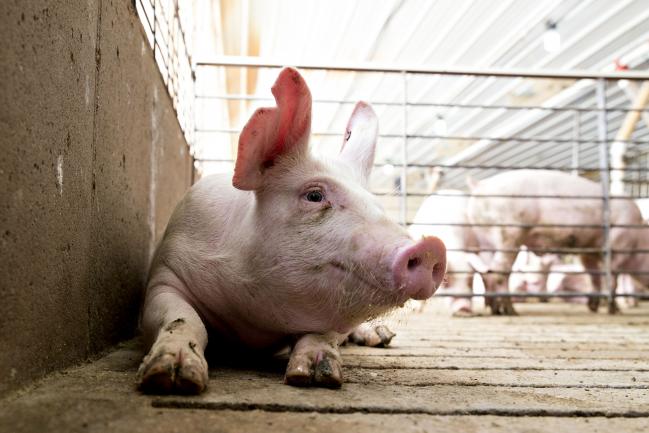(Bloomberg) -- China’s attempts to control African swine fever have been insufficient to stem further spread of the disease, with the deadly pig contagion now endemic in two regions, a United Nations group said.
The virus that causes the disease is entrenched among pig populations in the autonomous regions of Tibet and Xinjiang Uygur, the Food & Agriculture Organization in Rome said in a report Thursday. Diseases that are endemic, or generally present, are more difficult to stamp out by quarantining and culling diseased and vulnerable livestock.
About 20% of China’s pig inventories may have been culled in the first few months of 2019 amid fears of African swine fever spreading more rapidly, according to the FAO, which is monitoring the disease in cooperation with local authorities and China’s Ministry of Agriculture and Rural Affairs. China’s pig production will drop by 134 million head, or 20%, in 2019, the U.S. Department of Agriculture said last month.
“While official sources confirm a rapid spread of the disease, both the speed and severity of the spread could prove more pronounced than currently assumed,” the FAO said in its report. A government investigation in seven provinces found “irrational culling of sows on breeding farms in February, reducing the sector’s core production capacity.”
Since the first cases were reported last August, 130 outbreaks have been detected in 32 provinces, autonomous regions, municipalities and special administrative regions across the nation, which raises half the world’s pigs.
The FAO report found:
- In Jilin province, swine inventory fell 28% from the previous year, with some reports pointing to a larger drop
- In Shandong province, sow numbers fell 41% from July 2018 to February 2019
- In Guangdong province, hog inventories slumped 20% from a year earlier and pig-feed sales fell 10%-50%
- Production of fresh and frozen meat by meatpackers plunged 17% in January and February, compared with the same months in 2018
